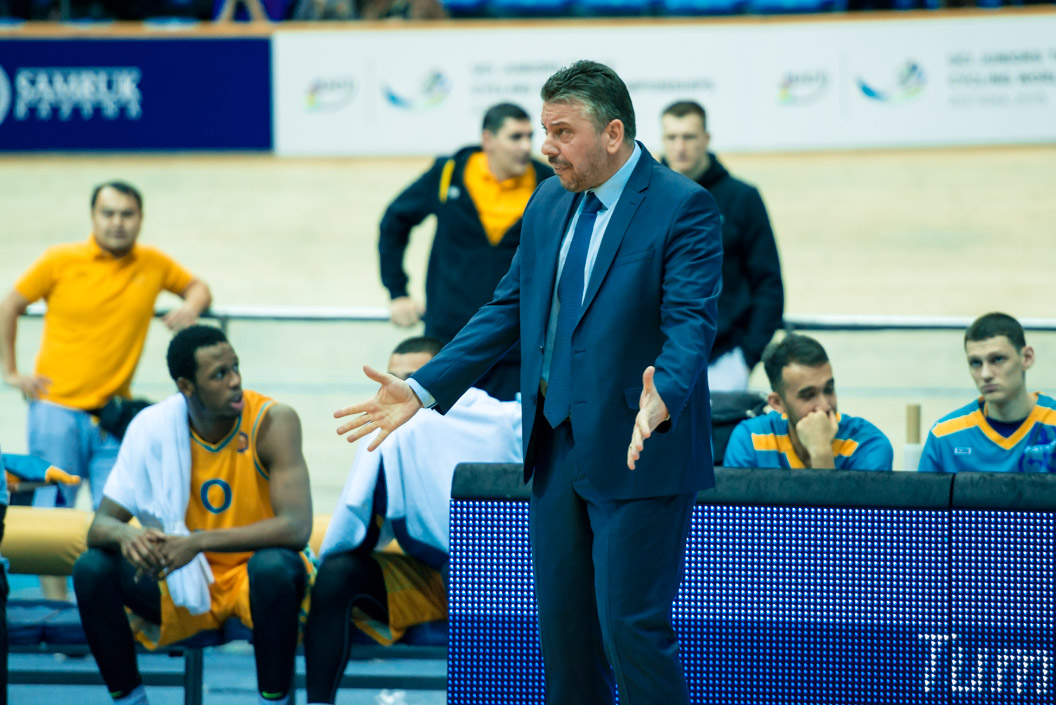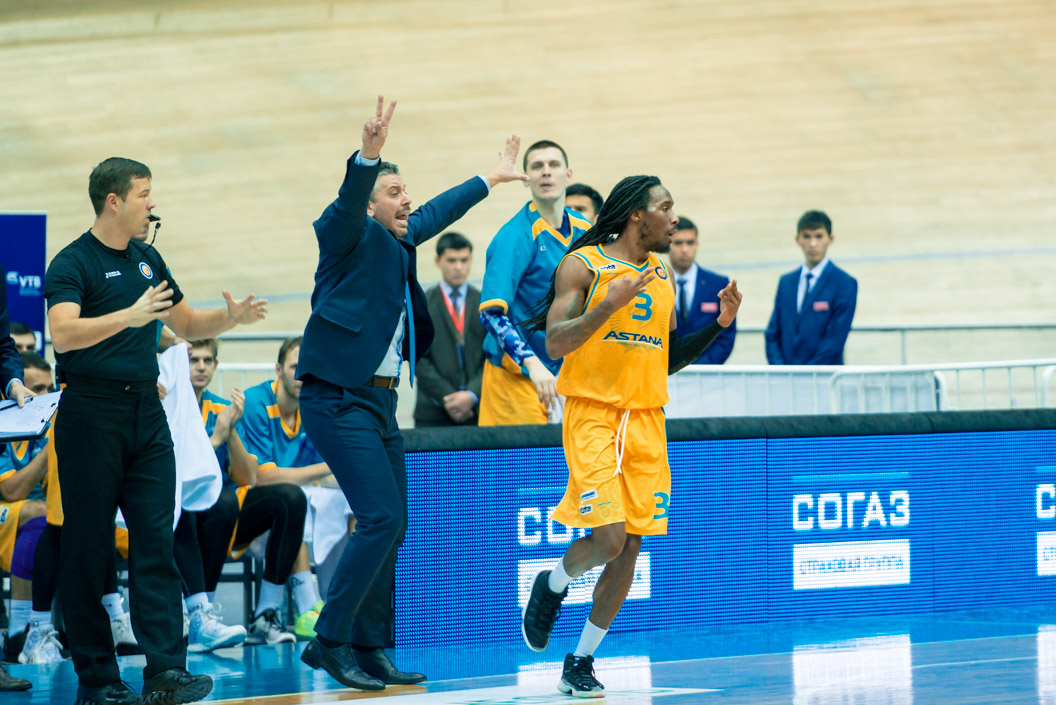At first glance, Astana’s boss, Ilias Papatheodorou appears to be a very strict, emotional coach. But that’s just a first impression! Greeks, after all, tend to be very expressive. Once you spend some time with Papatheodorou, you’ll quickly see he can be very empathetic and understanding.
Astana’s Ilias Papatheodorou talks about Astana’s discipline, his understanding of happiness and philosophy at work.
– Can you tell us about your family?
– I have three wonderful kids and one wife (laughs). My oldest daughter is 21. She’s in university. My son is 8. He plays basketball. My youngest daughter is 3. She’s just started ballet. They live in Greece, but will come visit soon. We’ll celebrate Christmas and New Year’s here.
– Can you tell us about how you got started in basketball? Why basketball? Soccer is also very popular in Greece.
– Soccer was my first sport. I started playing soccer at age 8 and really liked it. But my friends invited me to play basketball once and I liked that too. One of the coaches took a look at me and said I would be better at basketball. The European championships were being played in Athens that year (1987) and the Greek national team became European champions for the first time, playing the Soviet Union in the finals. Everyone said the win was a miracle and basketball’s popularity grew tremendously. After that great win, kids of my age started playing basketball en masse.
– Why did you become a coach at such an early age?
– I really liked working with kids. I liked basketball. When I turned 19, I started working as a coach at a youth academy. After 2-3 years there, I took over my first men’s team. The club was in last place in Greece’s first division. I worked step by step, got better, worked with the Greek youth team and we won a European championship together. Now I’m here with Astana. I like it here a lot.
– Have you worked with women’s teams?
– No, and I don’t want to (smiles).
– There are two superclubs in Greece: Olympiacos and Panathinaikos. Who do you root for?
– You know, in Greece it’s very difficult to answer the question of who’s better. I’m a fan of the Greek national team (smiles).
– What do you think of Astana?
– Astana is a very young, modern city with beautiful design. There’s a lot to do and see every day. One part of the city has more of a European style, while the other half is more Asiatic. I haven’t had time yet to see the entire city since we have a full schedule of work. But I hope that when my family visits for Christmas, we’ll be able to see other good places in Astana. I want to say that it’s very nice living in Astana. People are very friendly. There’s only one problem: the cold (smiles).
– What would you say about the club, Astana?
– I think it’s a totally new team this year. Together with the club’s front office, we are trying to build something new. When we met in Athens with general manager Valery Tikhonenko and Amanbek Kulchikov, I was asked to create something new and competitive. No question, the budget is much smaller than before, but that’s not our biggest issue. When we were looking for players, we looked for players with a lot of motivation who could create a new team along the Kazakh players. I think we’ve had decent results so far. We’re on the right track. It’s very tough to play in two completely different leagues. For me, the VTB League is one of the three strongest in Europe. The way it works out, one team plays in the national league and a different team in the VTB United League. But I’m very happy with the effort of our Kazakh players. They are trying to get better. We are working with them to change their mentality. It’s not easy. But they are playing better every day and have potential to grow and improve. We need support from the club management and fans. I think that Astana deserves more fans because our quality of basketball is very high.
– Why don’t Kazakh players play in the VTB United League?
– Like I said before, the level of the VTB League is very high. There are certain players that have experience and get chances, like Anton and Rustam Yergali. Other players need to work more and need more time. Once I believe they are ready to play in the VTB League and help the team, I will absolutely use them more.
– You’re always very emotional during games. What are you like beyond the court?
– Outside of practices and the gym, I’m completely different. I’m very focused and emotional during a game. During practices and games I get worked up a lot, because I love my job and love winning. It might look like I’m crazy during games, but that’s not true, of course (smiles).
– Are you a strict coach?
– No. I just want to control what’s happening on the team. If everyone accepts their role, I don’t have any issues. If one of the guys–and we have 15 guys with different personalities–start to follow his own rules, then things get tough for me and them (smiles).
– What five qualities do you embody?
– Respect, love, passion, character, motivation.
– What does happiness mean to you?
– When my children are nearby and when my team is winning.
– What’s your philosophy in basketball?
– Basketball is a 100% team sport. For that reason, everyone needs to be part of the team. We need to share everything evenly and everyone should be motivated to get better. Without those factors, no team can get good results. I think one of the biggest problems–and we are trying to fix this–is that foreign and domestic players are not united. We are trying to help the foreigners, local players, and coaching staff understand each other better. Every day, we try to get better at this.
– What’s the discipline like on the team?
– Overall, everything’s good. But we have one little nuance that needs time. Right now, everything looks good. Everyone’s happy, because we are undefeated in the Kazakh league and have three wins in the VTB League. I want to see how the team and people will react when we struggle. Then we’ll know if we have a real team or if we just look like a team. That’s why it’s very easy when there are no problems. When problems do arise, it’s easy to blame someone. You can blame the cold, the coach, the front office and not admit your own mistakes. When that moment comes, I’d really like to see the reaction.
– Ilias, we wish you and your team more beautiful wins and less injuries. Thanks for the interesting conversation.
– Thank you.


























